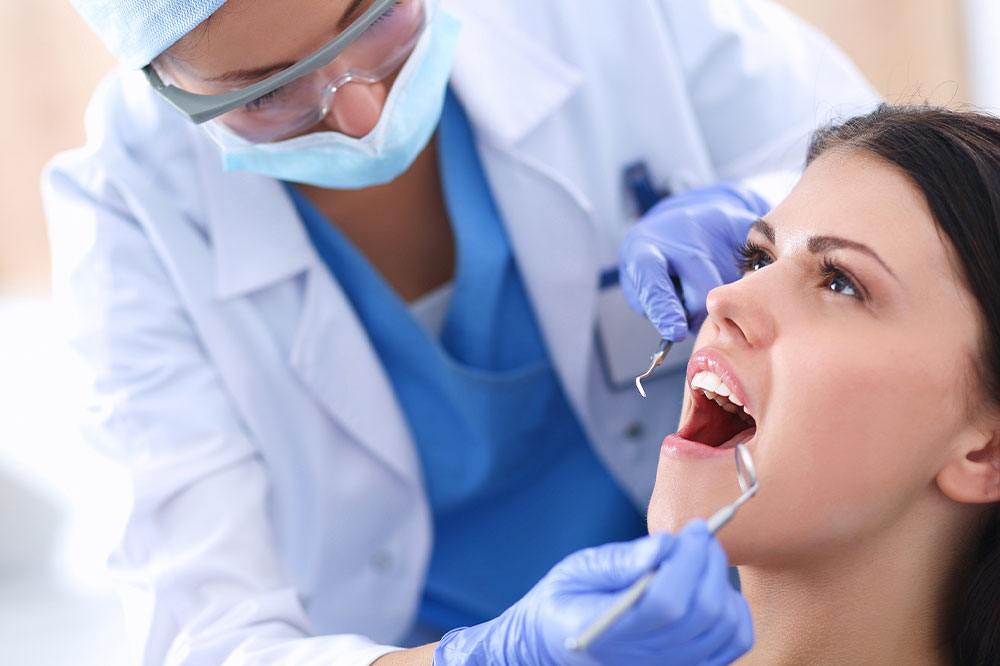
11 things and services that Medicare doesn’t cover
Over the years, Medicare has provided health insurance coverage to more than 60 million people nationwide. Individuals above 65 years and those with disabilities have benefited from this health insurance coverage. However, not all healthcare-related expenses are covered by Medicare; some things are excluded. In such scenarios, people should cover the remaining costs by taking supplemental insurance. Some things and services that are not covered by Medicare are listed below.
11 things Medicare doesn’t cover
Regular physical exams
Medicare doesn’t cover the expenses for routine physical exams that are not related to any diagnosis or treatment of any health condition or symptoms. However, Medicare has been expanded to provide coverage of checkups under certain circumstances. These include a one-time checkup in the first year of enrolling for Medicare Part B. Then, for subsequent years, coverage is provided for annual wellness visits.
Eye exams and opticians
The original Medicare covers certain eye health-related expenses, such as cataract surgery. However, it doesn’t cover others, such as expenses for contact lenses, expenses for glasses, and routine eye exams. Also, Medigap plans, which are the supplemental insurance plans offered by private insurance providers, do not cover these expenses. However, a few Medicare Advantage plans may cover the expenses for prescription glasses or routine eye checkups.
Hearing aids
Medicare covers certain ear conditions and hearing exams that a doctor has prescribed to diagnose an ear-related condition. In addition, it covers ear cleaning if a health expert deems it necessary. However, Medicare doesn’t cover hearing aids and routine hearing exams. However, certain Medicare Advantage plans may include coverage for some hearing-related requirements.
Dental care work
Medicare does not cover most dental work. These include dental procedures and supplies such as tooth extractions, cleanings, dental plates, fillings, dentures, and dental devices. However, the original Medicare plan may cover certain dental services if these have to be done as part of other healthcare procedures already covered. In addition, Medicare Part A, that is, hospital insurance, covers a few dental services if an enrollee is admitted to a hospital. Furthermore, Part A also covers hospital stays for complicated or emergency dental procedures.
Chiropractic care
Original Medicare plans will not cover most chiropractic services and examinations suggested by a chiropractor. Also, expenses for X-rays are not covered. But Medicare Part B does cover the service of manual spinal manipulation. However, it must be done by a chiropractor or other qualified provider. Besides, some Medicare Advantage plans do provide coverage for chiropractic services.
Massage therapy
Many people with chronic pain opt for massage therapy to alleviate the symptoms. However, the expenses incurred on such therapies are not covered by Medicare. The expenses of nearly all pain management treatments are not covered. However, there is coverage for occupational and physical therapy under a few specific circumstances prescribed by a doctor. Also, some Medicare Advantage plans may cover some part of massage therapy expenses.
Nursing home care
In most cases, Medicare covers the expenses for some rehabilitation facilities, such as inpatient physical therapy after surgery. However, it does not pay the expenses for nursing homes or assisted living facilities. But Medicare Part A does pay for some nursing home care as long as it doesn’t involve long-term care or custodial care.
Cosmetic surgery
Medicare does not cover most types of cosmetic surgeries. However, if an enrollee requires to undergo cosmetic surgery to treat a malformed part of the body or due to accidental injury, some part of the expenses may be covered by Medicare. For example, Medicare covers the expenses for breast prostheses carried out for breast reconstruction when a person undergoes a mastectomy due to breast cancer.
Overseas care
Medicare doesn’t provide coverage for enrollees who are not lawfully located in the country. It won’t also pay for claims made under parts A and B. Also, no coverage is provided by a majority of the Medicare Advantage plans for medical expenses outside the country. However, certain Medigap policies cover some overseas medical costs. For those who travel frequently, it might be helpful to enroll.
Concierge care
Some doctors and clinics, such as boutique clinics, require patients to pay a membership fee before seeking treatment. These are known as concierge care. The fees for such concierge care often cost thousands of dollars annually. These fees are not covered by Medicare. However, if the doctor participates in Medicare after paying the fees, they must offer the services provided by Medicare. In such scenarios, the same rules of coinsurance and copays will apply as in regular Medicare.
Podiatry
Medicare does not cover the expenses for podiatry care. These include routine medical care for feet, removal of callus, and so on. However, Medicare Part B provides coverage for foot examinations and prescribed treatments for nerve damage due to diabetes, bunion deformities, hammertoe, heel spurs, and other foot injuries.
What to do to get insurance for the above?
Besides Part A and Part B of original Medicare, one can choose from several other supplementary plans. These plans cover the gaps in the Original Medicare policy. One of the most common supplemental plans is the Medicare Advantage. It includes Plan C and Plan D. Another well-known plan is Plan G.
Also called Medigap plans, these are generally offered by private insurance providers. Medicare pays these providers to offer extra coverage to enrollees. For instance, consider the Mutual of Omaha Insurance Company Plan G 2023. This plan covers all the benefits offered by other Medicare Plans like plans A, B, and C. The only expense not covered is the Medicare Part B deductible. It is a good option for those looking for additional insurance coverage for hospitalization and can get the Medicare Part B deductible out of their own pocket.


